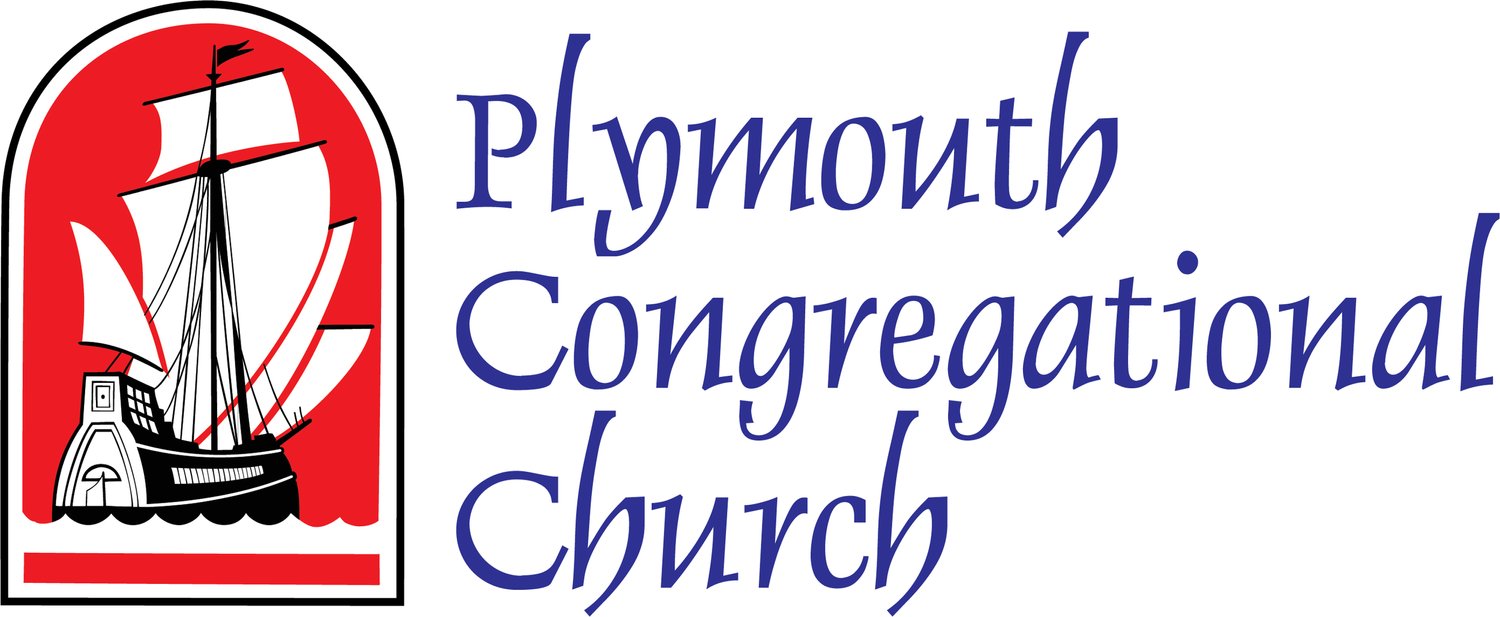What is a Congregational Church?
What is congregational?
Is it the same as Congregational?
Plymouth is a Congregational church and also a congregational church.
Congregational with a capital "C"
When we use the capital letter at the beginning of the word we are talking about a denomination or a group of churches. Congregational people don’t use the term denomination which indicates that control of a local church is held in some headquarters building, whereas a congregational church keeps final authority in the local congregation. The history of our forefathers explains why.
The Pilgrims who landed at Plymouth Rock in 1620 were fleeing the persecution of the Church of England and were called Separating Congregationalists. The Separating Congregationalists disagreed with the policies of the Church of England, but were allowed no voice of dissent and decided God wanted them to separate. They willingly faced the struggles of starting over in a the New World, America, to gain the freedom to worship as they felt led by God.
In one of those ironies of history, they established the Congregational Church as the only faith allowed in Massachusetts and Connecticut colonies and were as tough on those who disagreed as the Church of England had been on them. The “religious monopoly” they established became the dominant church in all of New England. They valued education and were instrumental in establishing Harvard and Yale. They were industrious and zealous about spreading the Gospel to Native Americans and immigrants. As America grew, they planted churches to the far coast. This is our Congregational heritage as a group.
Today Congregational churches are very diverse. Liberal theology greatly influenced the movement in the later 1800s and some became nearly Unitarian in theology. Several organizations exist today with the Conservative Congregational Christian Conference (CCCC) on the conservative side and the United Church of Christ on the liberal side.
Congregational with a small "c"
The word congregational, small “c”, refers to the type of church government or organizational structure that we believe in. We do not have a Vatican or a pope, or one top leader by any name. We have leaders, but we select them by following the pattern in the New Testament from the life of Paul and the Apostles who ministered with Jesus. That pattern is for the church to pick its leaders from the local body. (Read more about it in Acts 6 and 13 and 1 Corinthians 5.) Crucial for us to remember is that we do all things for the freedom to completely obey the Holy Spirit. Christ is the head of the Church and we have the Holy Spirit to guide us in obediently following Christ. When we do this, congregationalism works.
Two myths about congregational churches exist. One, we are not “lone rangers” who believe we alone have the truth of God. Congregationalists do believe in cooperating with other churches for fellowship and assistance with ordination of pastors and in solving problems. Two, congregational government is not a democracy where the majority rules. Rather, it is a system that recognizes Christ as the head of the church and each member has a responsibility to listen to the Holy Spirit of God who lives in them and teaches them.
It all begins with an idea. Maybe you want to launch a business. Maybe you want to turn a hobby into something more. Or maybe you have a creative project to share with the world. Whatever it is, the way you tell your story online can make all the difference.
Don’t worry about sounding professional. Sounds like you. There are over 1.5 billion websites out there, but your story is what’s going to separate this one from the rest.


